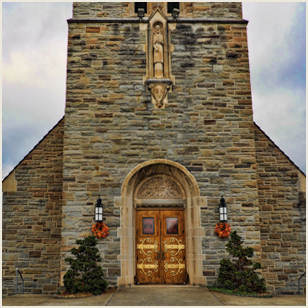Page: Quotes, Prayer (how), Quote Author, Quote Topic, Teresa of Avila (1515-1582)
It is well to seek greater solitude so as to make room for the Lord and allow His Majesty to do His own work in us. The most we should do is occasionally, and quite gently, to utter a single word, like a person giving a little puff to a candle, when he sees it has almost gone out, so as to make it burn again; though, if it were fully alight, I suppose the only result of blowing it would be to put it out. I think the puff should be a gentle one because, if we begin to tax our brains by making up long speeches, the will may become active again.
— Saint Teresa of Avila (1515-1582)
Gregory the Great (c. 540-604), Page: Quotes, Quote Author, Quote Topic, Spiritual (life)
There are in truth three states of the converted: the beginning, the middle, and the perfection. In the beginning they experience the charms of sweetness; in the middle the contests of temptation; and in the end the fullness of perfection.
–Saint Gregory the Great (c.540-604)
Isaac of Syria (Seventh Century), Page: Quotes, Prayer (why), Quote Author, Quote Topic, Spiritual (life)
Perseverance in prayer cleanses the intellect, illumines it, and fills it with the light of truth. The virtues, led by compassion, give the intellect peace and light. The cleansing of the intellect is not a dialectical, discursive and theoretical activity, but an act of grace through experience and is ethical in every respect. The intellect is purified by fasting, vigils, silence, prayer, and other ascetic practices.
–Saint Isaac of Syria (Seventh Century)
Death, Francis de Sales (1567-1622), Page: Quotes, Quote Author, Quote Topic, Spiritual (life)
You should often call to mind this good reflection: that in this world we are poised between paradise and hell, that our last step will land us in our eternal dwelling place, and that we do not know which step will be the last. In order to make the last step a good one, we must go on trying to make all the other steps good, too.
–Saint Francis de Sales (1567-1622)
Francis de Sales (1567-1622), Page: Quotes, Prayer (why), Quote Author, Quote Topic
The following consideration should never be forgotten when we go to prayer, namely, that we draw near to God and place ourselves in His presence principally for two reasons. The first is to render to God the honor and the homage we owe Him, and this can be done without God speaking to us or we to Him, for the duty is fulfilled by acknowledging that He is our Creator. . . . The second reason is to speak to God and to listen to Him when He speaks to us by His inspirations and the interior movements of grace. One or other of these two advantages can never fail to be derived from prayer.
–Saint Francis de Sales (1567-1622)
Francis de Sales (1567-1622), Page: Quotes, Prayer (how), Quote Author, Quote Topic, Spiritual (life)
If, then, we can speak to our Lord, let us do so in praise and supplication: if we are unable to speak, let us remain in his presence notwithstanding, offering him our silent homage; he will see us there, our patience will touch him and our silence will plead with him and win his favor. Another time, to our utter astonishment, he will take us by the hand, and converse with us, and make a hundred turns with us in his garden of prayer. And even should he never do this, still let us be content to know it is our duty to be in his retinue, and that it is a great favor and a greater honor for us that he suffers us in his presence.
–Saint Francis de Sales (1567-1622)

